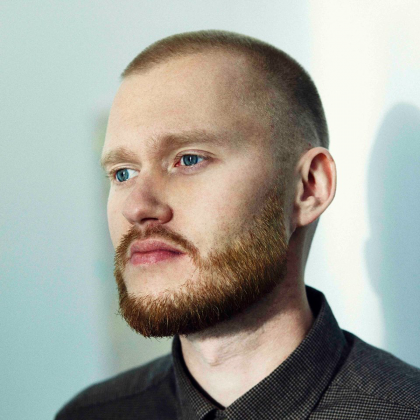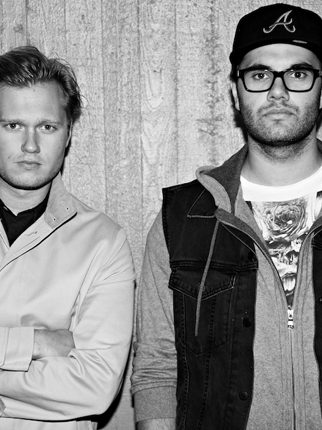Cazzette’s ‘Desserts’ and the Future of Music
“We’ve been listening to TOKiMONSTA’s ‘Feel My Tension’ a lot lately and the Game’s new single with Skrillex, ‘El Chapo.’ They’re pretty tight.”
Maybe you wouldn’t expect this Swedish house/electro duo to be into a pair of Los Angeles-crafted and bass-bin bruising anthems. But Cazzette—now an album, a new EP, and thousands of fans worldwide into their career—are an atypical twosome who are willing to embrace the wild, new musical frontier.
As one of electronic music’s early adopters of streaming platforms, Spotify in particular, the tandem is heralded for making their music stream-friendly, downloadable, and fully accessible. And they’ve done it in a way that’s made them leaders in fan engagement, resulting in successful music sales and live bookings. Their strategy is obviously working.
I chatted with Alexander Björklund, one half of Cazzette, about the evolution of music streaming, his thoughts on how the US is adjusting to EDM during this go-around of dance’s mainstream pop boom, and the duo’s new Desserts EP.
This year, Cazzette headed into the Desserts EP with the release of some dynamite and well-regarded bootlegs, including Tomoyasu Hotei’s Kill Bill soundtrack epic “Battle Without Honor or Humanity” and James Blake’s “Limit to Your Love.” How did these bootlegs come together?
That was something we hadn’t initially planned. As artists, we have great ideas all of the time, but you just can’t always go around and make official remixes for everything. Some of those track ideas were actually really old, and we hadn’t put them out. Before Ultra, we decided to put out those tracks because it’s a great time to get some new music out there and premiere stuff. It’s also a lot more fun to make a bootleg of Chaka Khan than, say, Calvin Harris’ “How Deep Is Your Love.”
Your bootleg of Chaka Khan’s “Miss My Love” in particular is crazy. I’ve always thought her vocals were great, and I was afraid she’d become a forgotten topline vocalist in this generation. Who are a few great singers you want to work with now, and what attributes do you look for in vocalists for your own tracks?
On the mainstream side, there’s Sia, for instance, who’s amazing. However, on the indie side, there are so many more. As well, like Chaka Khan, we also like old vocals that have their own identity. Honestly, if we hear 20 toplines, we may like one. We’re so picky with the vibe, lyrics and all of that. There are a lot of talented people we would like to work with, like Lion Babe, who’s also amazing. We’ve been listening to her stuff a lot lately, and a lot of other different types of things, too. That’s just who we are.
“People are caring a lot more about what music is being played.”
Let’s talk about your new EP, Desserts.
The response has been great. We play the tracks out often, actually. It’s fun for us, because we didn’t necessarily have clubs in mind for the [Desserts EP]. It’s dance music and it’s electronic, but we wanted the music to be more music we could play anywhere. It’s great to see it’s successfully working in different environments.
It wouldn’t be a Cazzette interview if I didn’t ask about streaming. You were very early adopters of streaming technology. It seems now so many other artists are willing supporters of streaming technology. What are your thoughts on this current trend?
I’m glad to see everyone else is looking at streaming really positively now. People are catching on and realizing that the internet might not be such a bad thing after all. It’s refreshing, and I think we’re going to see a lot more options when it comes to streaming. Honestly, it’s the future when it comes to consuming music. It’s either streaming or rare-to-find vinyl. Those are the ways people are going to want to consume music. The main difference now is that people [in the industry] are looking at the internet as something we can use to our advantage instead of, “Oh, the internet is keeping us from selling releases.”
“It’s cool that people are getting over the mainstream… You can tell that people are listening a lot more now.”

For me, it was ease of access. Spotify was huge, and they still are opening a lot of doors. They were the ones who introduced me to streaming and played a very important role. Streaming was an obvious choice to me, because I could have all of the music I like available wherever I am. If I’m out running, I can have the music I want to listen to in my phone. If I were at home, I could have the music streaming into my home system. It’s the access that spoke to me the most.
What about competing services, like Tidal, which have launched and caused quite the stir?
I think competition is necessary to drive the whole industry forward. [Streaming] is the same as any other industry [in that regard]. To me, Tidal seemed kind of weird, because it was a bunch of really rich artists sitting in a room saying they wanted more money. It’s weird to me, but hey, to each his own.
We’re a decade into the latest dance boom in America, and I think we’re in a weird place with it right now. We Are Your Friends flopped, but festivals are still gigantic. What are your thoughts on how American audiences are accepting and adjusting to dance music culture as a movement?
It’s actually cool what’s happening now. When you play big festivals and clubs, people are—and I mean what I’m about to say in a positive way—getting over the whole EDM mega superstar hype. People are caring a lot more about what music is being played. I think that’s great. That gives us space now for so much more creativity when we play out. We can now play cool indie electronic music and all sorts of variations of house, too. It’s cool that people are getting over the mainstream. That’s what I’ve been noticing lately. We don’t try to play the same stuff as everyone else, and it’s working really well. You can tell that people are listening a lot more now.
There’s a lot happening, and opportunities are everywhere. How do you keep the motivation high and move things forward? What’s the game plan?
If you want the industry to be more interesting, as far as sonic diversity and that stuff, I feel like that’s up to the artists. We should all be trying to play more diverse sets. We should try as hard as we can to give the people a different experience from what you would hear in nine out of 10 festival sets. That’s something Cazzette is trying to do these days. We want to maintain our creative freedom and just continue to play songs, which we love to do.
The Desserts EP from Cazzette is available now on ICONS Music.
Marcus K. Dowling has reverted back to cassette tapes just for the fun of it. Follow him on Twitter.
Follow Cazzette on Facebook | Twitter



